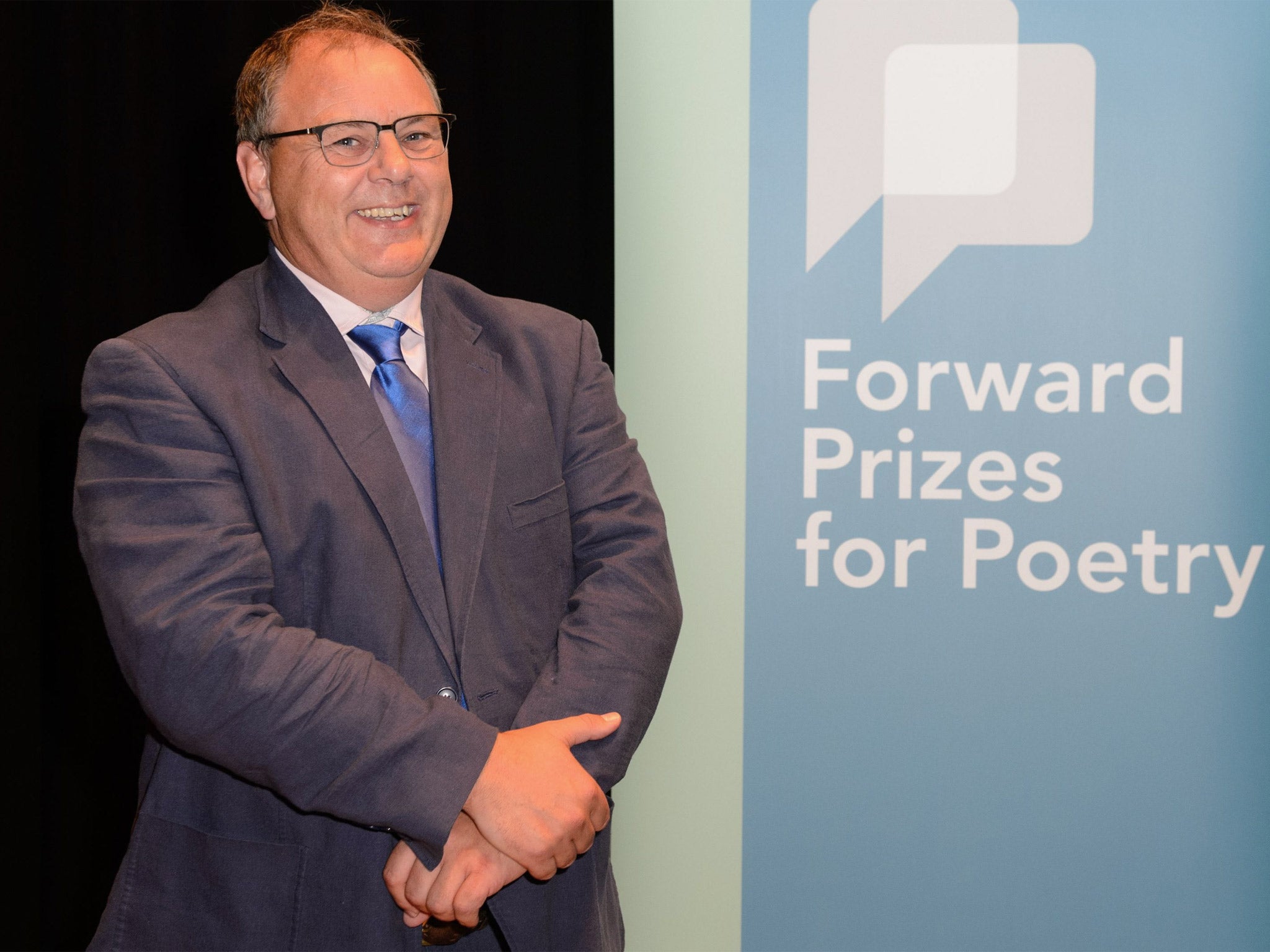Sexually charged poem about learning metric wins Forward Prize
Former maths teacher’s recollection of an unorthodox lesson was a ‘delight’ for judges

Your support helps us to tell the story
From reproductive rights to climate change to Big Tech, The Independent is on the ground when the story is developing. Whether it's investigating the financials of Elon Musk's pro-Trump PAC or producing our latest documentary, 'The A Word', which shines a light on the American women fighting for reproductive rights, we know how important it is to parse out the facts from the messaging.
At such a critical moment in US history, we need reporters on the ground. Your donation allows us to keep sending journalists to speak to both sides of the story.
The Independent is trusted by Americans across the entire political spectrum. And unlike many other quality news outlets, we choose not to lock Americans out of our reporting and analysis with paywalls. We believe quality journalism should be available to everyone, paid for by those who can afford it.
Your support makes all the difference.A maths teacher who wrote a sexually-charged poem about learning the metric system has scooped one of Britain’s most prestigious poetry prizes.
Nick MacKinnon won the Forward Prizes for Poetry’s Best Single Poem for “The Metric System”, in which the schoolboy narrator remembers an unorthodox maths lesson given by a “Miss Odell”, who encourages him to “Give me your finger. I want you to put it on the decimal point. Move it to the left. Again. Again. Right there.”
Mr MacKinnon worked as a psycho-geriatric nurse before becoming a maths and English teacher at Winchester College, the exclusive boy’s boarding school in Hampshire. Previous prizewinners across the categories have included John Burnside, Seamus Heaney, Ted Hughes and Carol Ann Duffy.
Mr MacKinnon, who grew up in Ardrishaig in western Scotland, was among the winners of the Edwin Morgan International Poetry Competition in 2010, while he was still working at the school.
His winning poem was read out at the awards ceremony in the Southbank Centre by Samuel West, the actor and prize co-judge. “I’m very pleased by this choice,” said West, adding: “Instruction in a poem can be boring, but this shows somebody grasping an idea without being taught in a boring, didactic way. It shows the delight in understanding a concept with playfulness.”
West dismissed the claim that the 22-year-old prize had been overshadowed by the sudden, and controversial, withdrawal of a poem in August. Clive Allen, known as CJ Allen, was reportedly a favourite to win for his poem on a woman suffering from dementia, “Explaining the Plot of Blade Runner to my Mother who has Alzheimer’s”, which was shortlisted in MacKinnon’s category, until he admitted to plagiarising work in the past and voluntarily withdrew.
Jeanette Winterson, novelist and chair of judges, stood by the judges’ reasons for shortlisting the poem on its merits at the time. West said: “I still think it was a beautiful poem…I think you judge the poem, not the person.” But he said it was right that Allen had withdrawn.
The winner of the Best Collection award was Michael Symmons Roberts, a previous Whitbread poetry award winner who was also shortlisted for the Forward Prize in 2004. West revealed that the jury came to a unanimous decision in selecting Roberts’s sixth collection, Drysalter, which has also been shortlisted for the TS Eliot Prize. Emily Berry won the Best First Collection award for Dear Boy, a series of soliloquys.
The metric system: An extract
I sucked the milk that Harold Wilson
invested in my infant skeleton,
laced with strontium from Windscale
and Christmas Island. Miss Odell
perched on my radiator, bra-less
in her flower power sundress.
“How would you weigh that straw?”
A spring balance hung from her finger, graduated in the metric system that had taken us to the moon.
Join our commenting forum
Join thought-provoking conversations, follow other Independent readers and see their replies
Comments